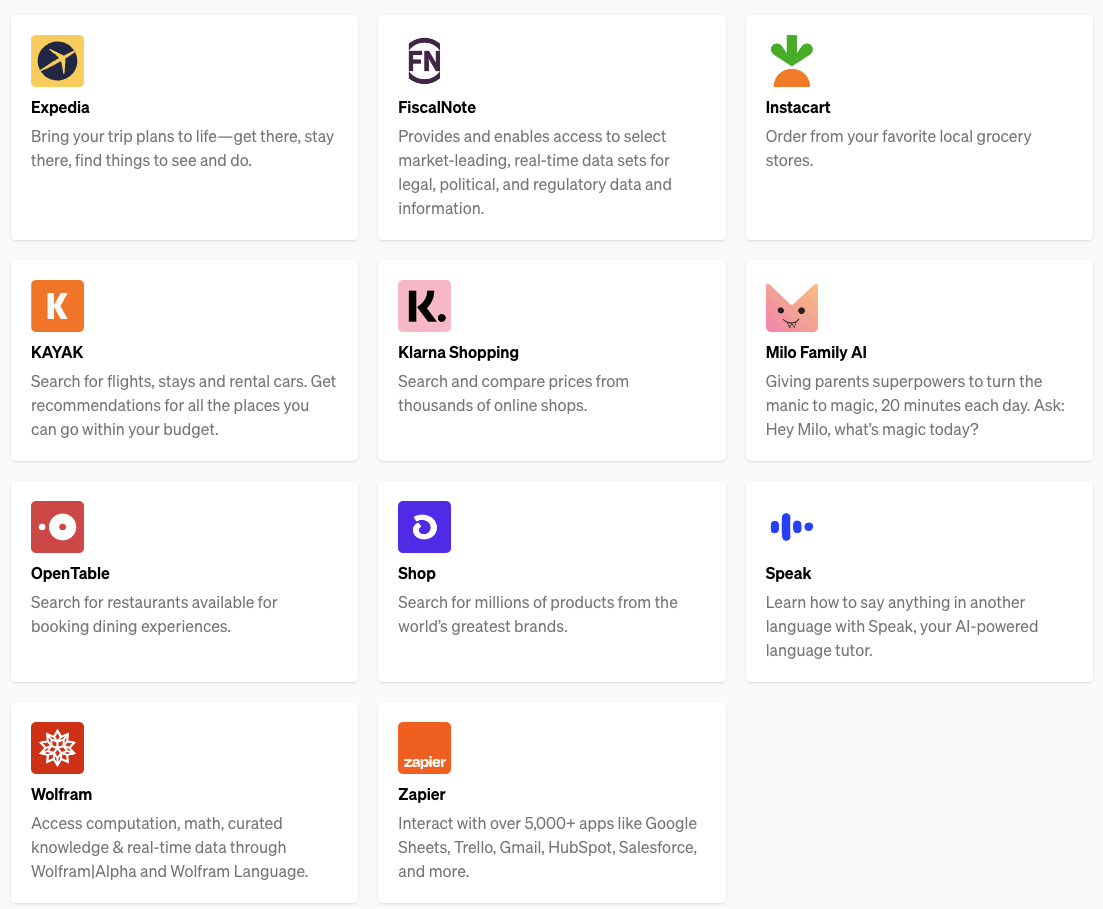SEO
OpenAI Introduces Plugin Support For ChatGPT

OpenAI announced the introduction of plugin support for ChatGPT.
This development aims to enhance the language model’s capabilities, allowing it to access up-to-date information, perform computations, and use third-party services.
OpenAI plans to gradually roll out plugins and study their real-world use, impact, and potential challenges.
Expanding ChatGPT’s Functionality
Plugins have been anticipated by users and developers alike as they unlock a wide range of use cases for ChatGPT.
Language models have limitations, relying solely on their training data for information.
Plugins can serve as “eyes and ears,” granting models access to more recent, personal, or specific information.
Additionally, plugins enable the AI to perform safe, constrained actions on users’ behalf.
Two plugins OpenAI is hosting include a web browser and a code interpreter.
OpenAI is also open-sourcing the code for a knowledge base retrieval plugin, allowing developers to augment ChatGPT with their own information.
Browsing & Code Interpreter Plugins
OpenAI’s browsing plugin allows ChatGPT to access information from the internet, expanding its knowledge base beyond the training data.
This enables the AI chatbot to provide more up-to-date and accurate information.
OpenAI’s code interpreter plugin grants ChatGPT the ability to use Python and handle uploads and downloads in a sandboxed environment.
Initial user studies have found the code interpreter to be useful for solving mathematical problems, data analysis, visualization, and file format conversion.
Retrieval Plugin
OpenAI’s open-source retrieval plugin allows ChatGPT to access personal or organizational information sources, such as files, notes, emails, or public documentation.
As a self-hosted solution, developers can deploy their own version and register it with ChatGPT. It uses OpenAI embeddings and supports various vector databases for indexing and searching documents.
Third-Party Plugins
Plugin support links ChatGPT with external apps, giving it the power to interact with developer-defined APIs.
This enhances ChatGPT’s abilities, enabling it to accomplish many different tasks.
With plugins, ChatGPT can do the following:
- Fetch real-time info, like sports scores, stock market updates, or the latest headlines
- Access knowledge-base data, such as company documents or personal notes
- Perform actions for users, like booking flights or ordering food
The first batch of plugins comes from companies including Expedia, FiscalNote, Instacart, KAYAK, Klarna, Milo, OpenTable, Shopify, Slack, Speak, Wolfram, and Zapier.
 Screenshot from: openai.com/blog/chatgpt-plugins, March 2023.
Screenshot from: openai.com/blog/chatgpt-plugins, March 2023.Availability
Plugin alpha access is being extended to users and developers on a waitlist.
Initially, access will be limited to a selection of developers and ChatGPT Plus users, with plans to increase access gradually.
In Summary
OpenAI’s introduction of plugin support for ChatGPT marks a significant step towards enhancing the capabilities of language models.
The browsing, code interpreter, and retrieval plugins are just the beginning.
As the development and integration of plugins continue, the ChatGPT ecosystem will become increasingly useful, creating new opportunities for users and developers alike.
Source: OpenAI
Featured Image: Muhammad S0hail/Shutterstock





![How AEO Will Impact Your Business's Google Visibility in 2026 Why Your Small Business’s Google Visibility in 2026 Depends on AEO [Webinar]](https://articles.entireweb.com/wp-content/uploads/2026/01/How-AEO-Will-Impact-Your-Businesss-Google-Visibility-in-2026-400x240.png)
![How AEO Will Impact Your Business's Google Visibility in 2026 Why Your Small Business’s Google Visibility in 2026 Depends on AEO [Webinar]](https://articles.entireweb.com/wp-content/uploads/2026/01/How-AEO-Will-Impact-Your-Businesss-Google-Visibility-in-2026-80x80.png)











